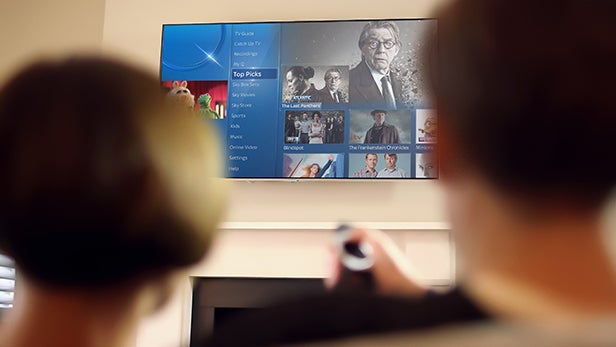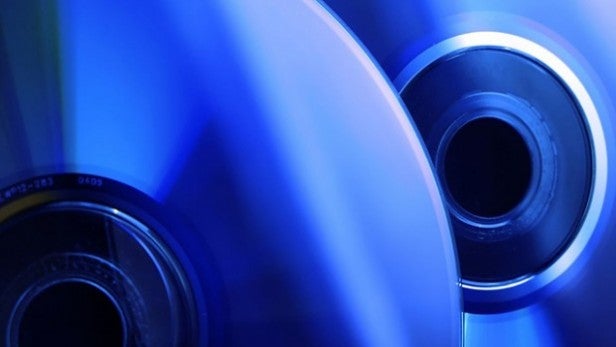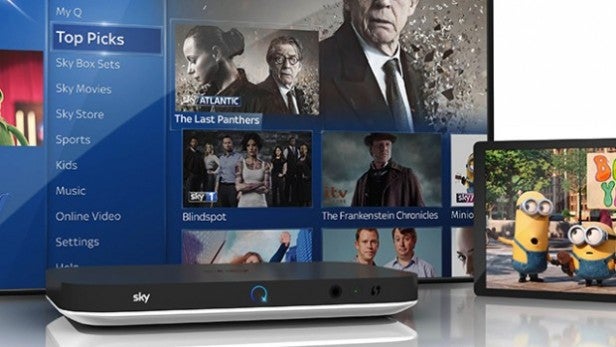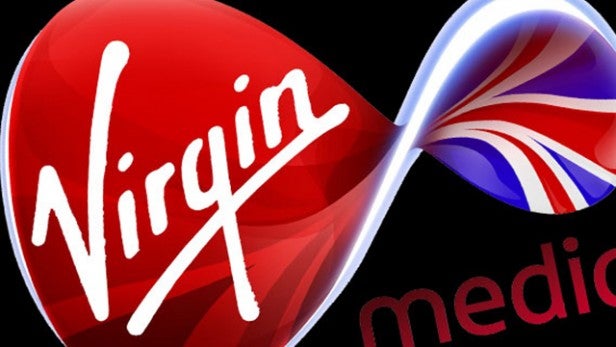4K TV broadcasts: Who’s winning the race to put 4K content on your TV?

What can you watch in 4K? From Sky Q and UHD Blu-ray discs to Champions League football
Unlike 3D, 4K is on course to be the next truly mainstream TV tech revelation. Here’s what Sky, BT, Netflix and the rest are doing to make sure there’s enough ultra high resolution content to watch from your living room sofa.
With 4K TVs gradually becoming more affordable, it’s no longer a cutting-edge feature for eager early adopters or those with big wallets.
Somewhat confusingly also known as Ultra High Definition or UHD, 4K is a step above high-definition TV and offers near lifelike picture quality At least that’s how it’s being sold to us.
While HD broadcasts offer a picture resolution of 1,920 x 1,080, 4K ups the ante by four, with a 3,840 x 2,160 image.
Almost all 4K TVs will upscale pictures from HD quality to UHD, but the results are never as good as a true 4K source. The trouble is that, while there’s still relatively little 4K content available.
This is slowly changing, as broadcasters step into the super-sharp world if 4K. Here’s a rundown of who’s doing what…
Related: Ultra HD Blu-ray: All you need to know about 4K Blu-ray players, discs and the rest
UHD Blu-ray
The other and arguably best way to watch 4K content is through a dedicated physical medium. The UHD Blu-ray standard was finalised in May 2015, and we finally saw the first batch of UHD Blu-ray players unveiled at CES 2016.
UHD Blu-rays output at a steady 3,840 x 2,160, of course, and you won’t need a ninja internet connection to sustain them. They also provide support for frame rates up to 60fps, although very few films shoot at this super-silky standard.
These early machines will be available over the coming months, as well the first UHD Blu-ray discs themselves. Be warned though: brand new UHD Blu-ray releases look set to cost twice as much as regular Blu-ray discs.
Related: 9 reasons why you’ll want Sky Q 
Sky
Sky’s long-rumoured 4K box, the Sky Q, was finally announced late last year. We don’t known when it will launch, aside from ‘early 2016,’ and we don’t know how much it will cost either. However, we do have an idea of what it will involve.
The Sky Q Silver box is the hub of Sky’s ambitious new set-up. This is a replacement for the Sky+ HD we all know and love/hate, and it features 4K output support and 2TB of storage on which to store all that UHD content.
The new Sky Q box offers a more advanced service than its rival BT, with a distinctly Apple or Netflix-style carousel UI that’s much heavier on images and lighter on text than the current Sky service.
Sky Q enables viewers to watch and record four channels at the same time, across different devices. Sky has also renegotiated with broadcasters to allow subscribers to side-load programmes onto their smartphones and tablets.
However, we don’t have a particularly good idea of the precise nature of the 4K content that will be offered just yet.
We don’t even know whether there will be a place for Netflix and Amazon on the new app ecosystem Sky has unveiled. It would be odd if there wasn’t though, given the lead both services have taken on 4K content (as we’ll discuss a little later).
Buy Now: Sky Q at Sky.com from £20 a month
BT
Rapidly becoming a big player in the sports broadcasting world, BT is using sport to lead its charge into 4K.
BT Sport Ultra HD launched last year to coincide with the start of the 2015-16 football season, alongside the new BT Ultra-HD box.
Europe’s first 4K sports channel, BT Sport Ultra HD has plenty for football fans to watch including UEFA Champions League, Barclays Premier League and FA Cup matches. For the egg-chasers, the channel also shows UHD Avivia Premiership Rugby.
Related: What is 4K and Ultra HD?
BT’s 4K hardware comes in the form of a Humax-made YouView+ box. The catchily named Humax DTR-T4000 packs 1TB of storage, which is enough for around 60 hours of 4K playback. Alternatively, this works out at around 600 hours of standard-def footage or 250 hours of HD programming.
The latest box can be ordered online, but subscribers wishing to make the upgrade will need to pay a one-off installation fee of £44, and they will need to have BT Infinity. On top of that, they’ll need the BT HD Ultra Entertainment pack, priced at £15 a month. This includes the access to the BT Sports pack, all the Freeview channels, 47 ‘premium’ channels plus catch-up services such as BBC iPlayer.
It also provides access to Netflix’s 4K package, which usually sets you back £8.99 per month on its own.
Related: OLED vs LED LCD: Which is better?
Virgin
We spoke to Virgin Media to ask about its 4K plans for the first iteration of this article in mid-2015, but the company gave no comment. It’s remained schtum on the matter ever since.
In keeping with this, some sources suggest that Virgin is in no hurry to launch a UHD service.
According to a Recombu report from March 2014, Global President and Chief Executive of Virgin Media owner Liberty, Mike Fries, said that introducing 4K to the existing service was “not an immediate concern”.
Of course, that was almost two years ago now, and the recent actions of its key rivals – Sky and BT – can’t have gone unnoticed at Virgin HQ.
Indeed, there are signs that Virgin has been experimenting with 4K for some time. Back in December 2014, it was reported that Virgin was carrying out ultra high-speed internet field test in Cambridgeshire, hinting that the company could be preparing for a 4K service in future.
With main rivals Sky and BT Sport already unveiling their UHD plans, it would be surprising if Virgin Media doesn’t have some sort of 4K service on its 2016 road map.
Netflix, Amazon and YouTube
While traditional TV broadcasters have taken their good old time to bring 4K to UK screens, online streaming services have been quicker off the mark.
As of April 2014, Netflix started offering 4K streaming of some of its original content with political thriller House of Cards being the first to get the UHD treatment. Netflix also offers AMC’s druggie drama Breaking Bad in 4K, plus its own array of shows like Jessica Jones and Daredevil.
Since these initial offerings, Netflix has added the likes of Marco Polo and The Blacklist to the 4K TV list, as well as UHD films such as The Amazing Spider-Man, Crouching Tiger Hidden Dragon and Jerry Maguire.
Currently, Netflix users need to be on the 4K-specific plan, which costs £8.99 a month, compared to the basic tier which has a price tag of £5.99. A steady internet connection speed of 25 Megabits per second is also required.
Amazon Prime Instant Video also began 4K streaming at the end of 2014. It’s not quite as ubiquitous as Netflix, but availability is improving all the time.
The service is available on a selection of smart TV sets from Sony, LG and Samsung, and you can also obtain Amazon Video apps on the PS4 and Xbox One consoles. Naturally, it’s available through the current 4K-compatible Amazon Fire TV box, but it’s also available on Roku’s latest 4K box.
Like Netflix, Amazon also offers some of its original content in 4K, most notably Alpha House and Transparent, which are available to Amazon Prime subscribers at no extra charge. A small selection of super-sharp 4K movies is also on offer, though these need to be downloaded at a fee of £14.99 each.
You can also turn to the internet for some 4K content. Google-owned YouTube has a growing amount of 4K content, and there are also a handful of dedicated 4K sites such as hd-trailers.net and demo-uhd3d.com. These dedicated sites let you download files and shift them to a USB drive for direct playback on your TV – assuming your TV is compatible with the video encoding format of the file.
Buy Now: Amazon Prime at Amazon.co.uk from £7.99 a month

BBC
It used to be suggested that the BBC would be broadcasting in 4K as standard by 2016, but that obviously hasn’t come to pass. The corporation still doesn’t feel that enough 4K TV sets are out there to justify a more meaningful push, and we doubt their recent budgetary cuts will have helped.
The nation’s broadcasting corporation is well-known for its technical innovations, such as iPlayer. However, it seems highly unlikely that 4K will be a priority in the near future given funding issues such as the Tories’ summer budget shifting the cost of ‘free’ TV licences for the over-75s – an estimated £650m a year – from the Department for Work and Pensions to the BBC.
Whenever it happens, 4K is certainly on the BBC’s radar – it ran several 4K trials during coverage of the 2014 World Cup in Brazil. Although not available for public viewing, three games from the global sporting tournament were shot and transmitted via satellite by the Beeb’s R&D department.
Related: Best TV Deals
Are you ready to upgrade to 4K? Let us know below.


